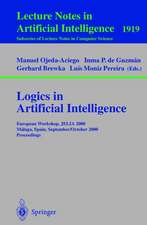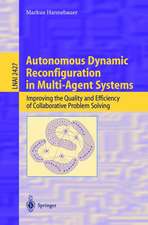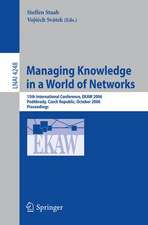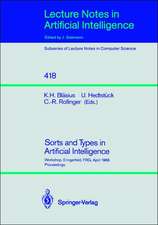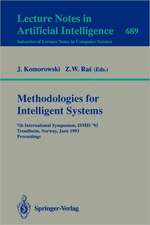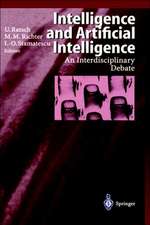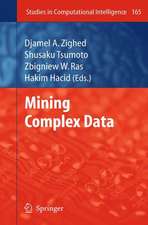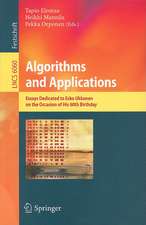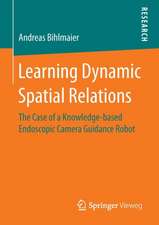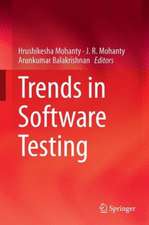Foundations of Intelligent Systems: 18th International Symposium, ISMIS 2009, Prague, Czech Republic, September 14-17, 2009, Proceedings: Lecture Notes in Computer Science, cartea 5722
Editat de Jan Rauch, Zbigniew W. Ras, Petr Berka, Tapio Elomaaen Limba Engleză Paperback – 3 sep 2009
Din seria Lecture Notes in Computer Science
- 20%
 Preț: 1061.55 lei
Preț: 1061.55 lei - 20%
 Preț: 307.71 lei
Preț: 307.71 lei - 20%
 Preț: 438.69 lei
Preț: 438.69 lei - 20%
 Preț: 645.28 lei
Preț: 645.28 lei -
 Preț: 410.88 lei
Preț: 410.88 lei - 15%
 Preț: 580.46 lei
Preț: 580.46 lei - 17%
 Preț: 427.22 lei
Preț: 427.22 lei - 20%
 Preț: 596.46 lei
Preț: 596.46 lei -
 Preț: 449.57 lei
Preț: 449.57 lei - 20%
 Preț: 353.50 lei
Preț: 353.50 lei - 20%
 Preț: 1414.79 lei
Preț: 1414.79 lei - 20%
 Preț: 309.90 lei
Preț: 309.90 lei - 20%
 Preț: 583.40 lei
Preț: 583.40 lei - 20%
 Preț: 1075.26 lei
Preț: 1075.26 lei - 20%
 Preț: 310.26 lei
Preț: 310.26 lei - 20%
 Preț: 655.02 lei
Preț: 655.02 lei - 20%
 Preț: 580.93 lei
Preț: 580.93 lei - 20%
 Preț: 340.32 lei
Preț: 340.32 lei - 18%
 Preț: 938.83 lei
Preț: 938.83 lei - 20%
 Preț: 591.51 lei
Preț: 591.51 lei - 15%
 Preț: 438.59 lei
Preț: 438.59 lei - 20%
 Preț: 337.00 lei
Preț: 337.00 lei -
 Preț: 389.48 lei
Preț: 389.48 lei - 20%
 Preț: 607.39 lei
Preț: 607.39 lei - 20%
 Preț: 1024.44 lei
Preț: 1024.44 lei - 20%
 Preț: 579.30 lei
Preț: 579.30 lei - 20%
 Preț: 763.23 lei
Preț: 763.23 lei - 20%
 Preț: 453.32 lei
Preț: 453.32 lei - 20%
 Preț: 575.48 lei
Preț: 575.48 lei - 20%
 Preț: 585.88 lei
Preț: 585.88 lei - 20%
 Preț: 825.93 lei
Preț: 825.93 lei - 20%
 Preț: 763.23 lei
Preț: 763.23 lei - 17%
 Preț: 360.19 lei
Preț: 360.19 lei - 20%
 Preț: 1183.14 lei
Preț: 1183.14 lei - 20%
 Preț: 340.32 lei
Preț: 340.32 lei - 20%
 Preț: 504.57 lei
Preț: 504.57 lei - 20%
 Preț: 369.12 lei
Preț: 369.12 lei - 20%
 Preț: 583.40 lei
Preț: 583.40 lei - 20%
 Preț: 343.62 lei
Preț: 343.62 lei - 20%
 Preț: 350.21 lei
Preț: 350.21 lei - 20%
 Preț: 764.89 lei
Preț: 764.89 lei - 20%
 Preț: 583.40 lei
Preț: 583.40 lei - 20%
 Preț: 649.49 lei
Preț: 649.49 lei - 20%
 Preț: 341.95 lei
Preț: 341.95 lei - 20%
 Preț: 238.01 lei
Preț: 238.01 lei - 20%
 Preț: 538.29 lei
Preț: 538.29 lei
Preț: 663.29 lei
Preț vechi: 829.10 lei
-20% Nou
Puncte Express: 995
Preț estimativ în valută:
126.92€ • 132.87$ • 105.02£
126.92€ • 132.87$ • 105.02£
Carte tipărită la comandă
Livrare economică 07-21 aprilie
Preluare comenzi: 021 569.72.76
Specificații
ISBN-13: 9783642041242
ISBN-10: 3642041248
Pagini: 640
Ilustrații: XVI, 624 p.
Dimensiuni: 155 x 235 x 28 mm
Greutate: 0.91 kg
Ediția:2009
Editura: Springer Berlin, Heidelberg
Colecția Springer
Seriile Lecture Notes in Computer Science, Lecture Notes in Artificial Intelligence
Locul publicării:Berlin, Heidelberg, Germany
ISBN-10: 3642041248
Pagini: 640
Ilustrații: XVI, 624 p.
Dimensiuni: 155 x 235 x 28 mm
Greutate: 0.91 kg
Ediția:2009
Editura: Springer Berlin, Heidelberg
Colecția Springer
Seriile Lecture Notes in Computer Science, Lecture Notes in Artificial Intelligence
Locul publicării:Berlin, Heidelberg, Germany
Public țintă
ResearchCuprins
Invited Papers.- Randomization Methods for Assessing the Significance of Data Mining Results.- Dealing with Music in Intelligent Ways.- Intelligent Systems: From R.U.R. to ISMIS 2009 and beyond.- The Art of Management and the Technology of Knowledge-Based Systems.- Knowledge Discovery and Data Mining.- Frequent Itemset Mining in Multirelational Databases.- A Multiple Scanning Strategy for Entropy Based Discretization.- Fast Subgroup Discovery for Continuous Target Concepts.- Discovering Emerging Graph Patterns from Chemicals.- Visualization of Trends Using RadViz.- Action Rules Discovery Based on Tree Classifiers and Meta-actions.- Action Rules and the GUHA Method: Preliminary Considerations and Results.- Semantic Analytical Reports: A Framework for Post-processing Data Mining Results.- Applications of Intelligent Systems in Medicine.- Medical Decision Making through Fuzzy Computational Intelligent Approaches.- Fuzzy Cognitive Map Based Approach for Assessing Pulmonary Infections.- A Knowledge-Based Framework for Information Extraction from Clinical Practice Guidelines.- RaJoLink: A Method for Finding Seeds of Future Discoveries in Nowadays Literature.- Logical and Theoretical Aspects of Intelligent Systems.- Automatic Generation of P2P Mappings between Sources Schemas.- An OWL Ontology for Fuzzy OWL 2.- Fuzzy Clustering for Categorical Spaces.- Reasoning about Relations with Dependent Types: Application to Context-Aware Applications.- Quasi-Classical Model Semantics for Logic Programs – A Paraconsistent Approach.- Prime Implicates and Reduced Implicate Tries.- Logic for Reasoning about Components of Persuasive Actions.- A Hybrid Method of Indexing Multiple-Inheritance Hierarchies.- Text Mining.- Theme Extraction from Chinese Web Documents Based on Page Segmentationand Entropy.- Topic-Based Hard Clustering of Documents Using Generative Models.- Boosting a Semantic Search Engine by Named Entities.- Detecting Temporal Trends of Technical Phrases by Using Importance Indices and Linear Regression.- Applications of Intelligent Systems in Music.- Detecting Emotions in Classical Music from MIDI Files.- Mining Musical Patterns: Identification of Transposed Motives.- Musical Instruments in Random Forest.- Application of Analysis of Variance to Assessment of Influence of Sound Feature Groups on Discrimination between Musical Instruments.- Information Processing.- Alternative Formulas for Rating Prediction Using Collaborative Filtering.- On Three Classes of Division Queries Involving Ordinal Preferences.- Analyses of Knowledge Creation Processes Based on Different Types of Monitored Data.- Intelligent Information Processing in Semantically Enriched Web.- Agents.- Modeling Ant Activity by Means of Structured HMMs.- Modern Approach for Building of Multi-Agent Systems.- Relational Sequence Clustering for Aggregating Similar Agents.- FutureTrust Algorithm in Specific Factors on Mobile Agents.- Machine Learning.- Ensembles of Abstaining Classifiers Based on Rule Sets.- Elicitation of Sugeno Integrals: A Version Space Learning Perspective.- Efficient MAP Inference for Statistical Relational Models through Hybrid Metaheuristics.- Combining Time and Space Similarity for Small Size Learning under Concept Drift.- Similarity and Kernel Matrix Evaluation Based on Spatial Autocorrelation Analysis.- Applications of Intelligent Systems.- Job Offer Management: How Improve the Ranking of Candidates.- Discovering Structured Event Logs from Unstructured Audit Trails for Workflow Mining.- GIS-FLSolution: A Spatial Analysis Platform for Static andTransportation Facility Location Allocation Problem.- A CBR System for Knowing the Relationship between Flexibility and Operations Strategy.- Semantic-Based Top-k Retrieval for Competence Management.- A New Strategy Based on GRASP to Solve a Macro Mine Planning.- Food Wholesales Prediction: What Is Your Baseline?.- Complex Data.- A Distributed Immunization Strategy Based on Autonomy-Oriented Computing.- Discovering Relevant Cross-Graph Cliques in Dynamic Networks.- Statistical Characterization of a Computer Grid.- On Social Networks Reduction.- Networks Consolidation through Soft Computing.- Lacking Labels in the Stream: Classifying Evolving Stream Data with Few Labels.- Novelty Detection from Evolving Complex Data Streams with Time Windows.- General AI.- On Computational Creativity, ‘Inventing’ Theorem Proofs.- Revisiting Constraint Models for Planning Problems.- Uncertainty.- Interval-Valued Fuzzy Formal Concept Analysis.- Application of Meta Sets to Character Recognition.- A General Framework for Revising Belief Bases Using Qualitative Jeffrey’s Rule.
Textul de pe ultima copertă
This book constitutes the refereed proceedings of the 18th International Symposium on Methodologies for Intelligent Systems, ISMIS 2009, held in Prague, Czech Republic, in September 2009.
The 60 revised papers presented together with 4 plenary talks were carefully reviewed and selected from over 111 submissions. The papers are organized in topical sections on knowledge discovery and data mining, applications and intelligent systems in Medicine, logical and theoretical aspects of intelligent systems, text mining, applications of intelligent sysems in music, information processing, agents, machine learning, applications of intelligent systems, complex data, general AI as well as uncertainty.
The 60 revised papers presented together with 4 plenary talks were carefully reviewed and selected from over 111 submissions. The papers are organized in topical sections on knowledge discovery and data mining, applications and intelligent systems in Medicine, logical and theoretical aspects of intelligent systems, text mining, applications of intelligent sysems in music, information processing, agents, machine learning, applications of intelligent systems, complex data, general AI as well as uncertainty.
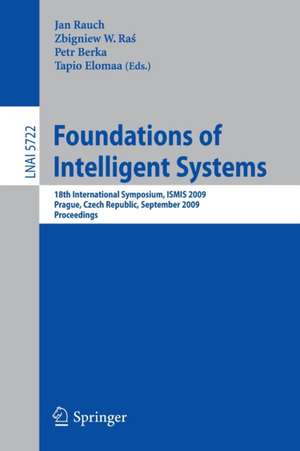
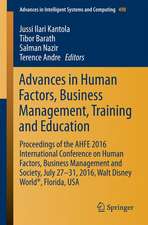



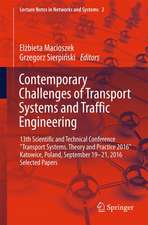
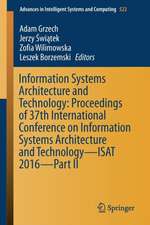
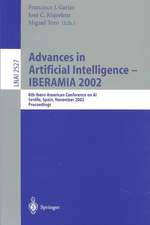
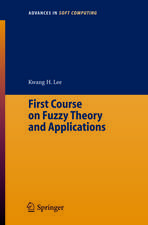

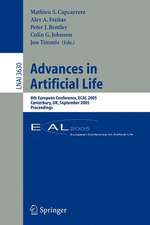
![OMDoc -- An Open Markup Format for Mathematical Documents [version 1.2]: Foreword by Alan Bundy](https://i2.books-express.ro/bt/9783540378976/omdoc-an-open-markup-format-for-mathematical-documents-version-1-2.jpg)

